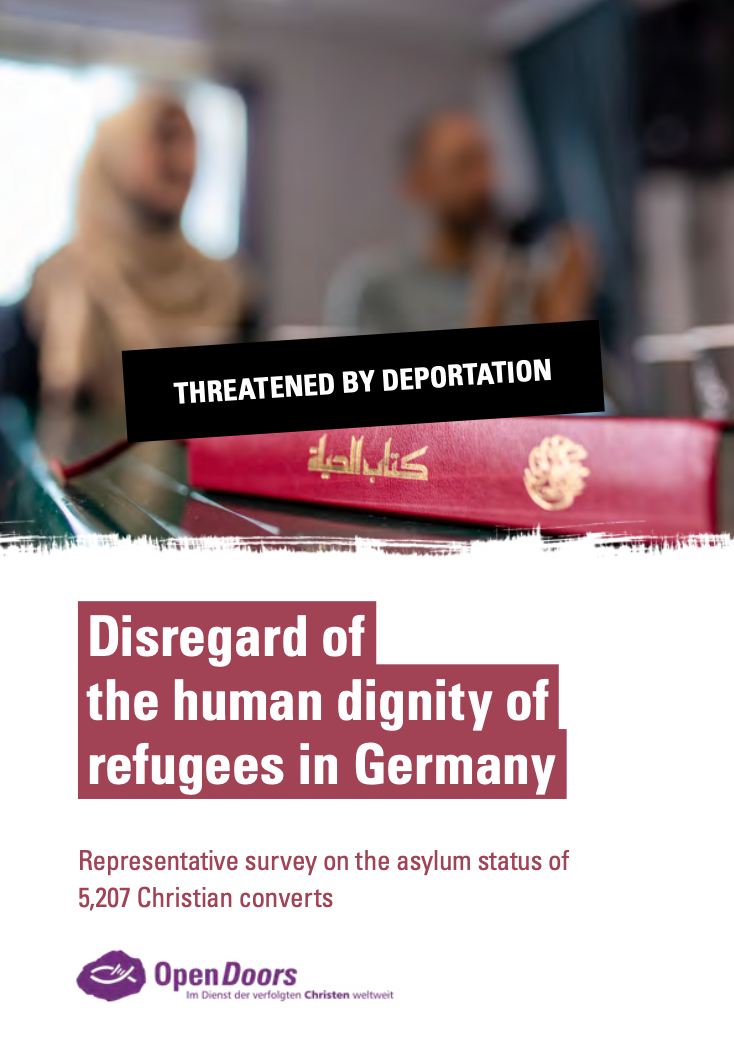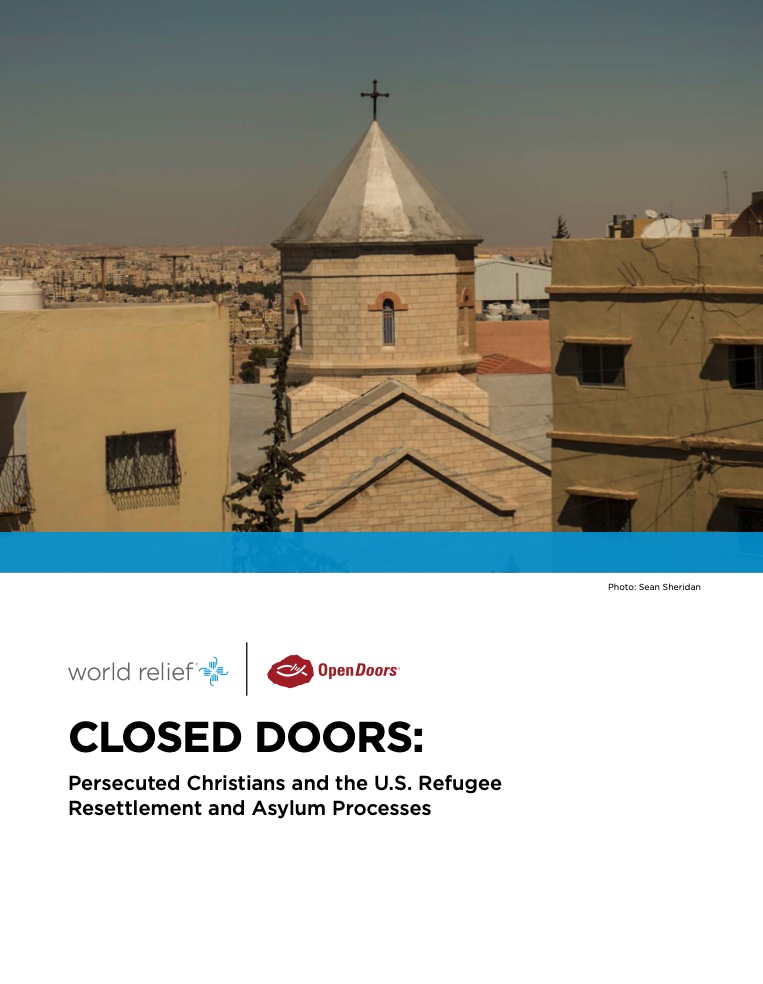A new report by a Christian charity in Germany is highly critical of its immigration service for failing to recognise the testimony of pastors when considering the claims of asylum-seekers professing to be Christian converts, the majority of whom are Iranian.
The report by Open Doors Germany, released in German in October and now in English, found that since 2017, of 5,207 Christian converts who received certificates from pastors testifying to the integrity of their faith – 3,081 of whom were Iranian – 2,045 subsequently saw their asylum claims rejected.
Furthermore, the appeals of 1,400 of these asylum-seekers were later rejected, and 99 have now been deported – either back to their country of origin, or to the first country they entered after leaving home.
Speaking to Article18, the author of the report, Ado Greve, said the findings – based on the responses of 133 Protestant and Evangelical churches from across each of Germany’s 16 federal states – showed that the German immigration service in many cases does not consider the testimony of pastors to be of any significance.
“If you think of a court case, when there is a question about the mental condition of the accused person, many times they will call in an expert like a psychologist, and the expert comes up with a statement, which usually has great significance,” he said.
“In the same way, pastors are experts in their profession, which is the Christian faith. So the certificates of these experts must be recognised, without any reservation. And they must be viewed as the main source of information about the integrity of the faith of a convert.
“It’s simply not OK that the staff of our immigration authorities look at the certificate of a German pastor, and say, ‘Well, yeah, you know, you may have made this judgment after knowing the person [convert] for three years, but we have had three hours, and my judgment is much better than yours!”
Mr Greve also pointed to the “high discrepancies” between regions, citing a 94% rejection rate in the German capital, Berlin, compared with just 10% in other states.
This isn’t the first time Open Doors Germany has raised the issue of Christian Convert asylum-seekers.
In 2016, the charity released a report focusing on the violence they face in refugee accommodation.
Then in 2019 the focus of another report was the sharp decline in acceptance of their asylum claims.
Of the 2019 report, Mr Greve said he had been particularly shocked to discover that asylum-seekers who produced a letter of recommendation from a pastor testifying to the genuineness of their faith were statistically less likely to be accepted than those who did not.
“It means nothing less than converts and the pastors who issue the faith certificates are equally mistrusted – by the German authorities,” he said.
So when, in May this year, he heard the vice-president of Germany’s immigration service responding to the public criticism of a Berlin pastor by saying the service had encouraged pastors to write letters of recommendation, he decided to focus a new report solely on this issue.
Still, he said the findings shocked him, including the sense that, if anything, the situation of Christian asylum-seekers appears to be getting worse.
“That’s what I hear from many pastors,” Mr Greve said, explaining that not only are rejections of claims increasing, but living conditions for asylum-seekers are also deteriorating.
For example, whereas five years ago an asylum-seeker would be allowed to work while a decision on their case was pending, and given language courses to help them integrate into society, both of these provisions have now been removed.
Instead, Mr Greve said asylum-seekers now receive from the state “just enough money to stay alive”, and cannot work legally.
“The whole thing has become so restricted,” Mr Greve said, “so for them [the asylum-seekers] it is now just an endless pain, over years, while they are waiting for their court case at the administrative courts.”
Another finding that Mr Greve highlighted was the remarkable increase of rejections of Iranians in the past five years, rising from around 50% in 2017 to as high as 75% in 2021, according to the official figures of the Federal Office of Migration.
“It makes you question, ‘Did all the good Iranians come before 2017?’ And now the bad ones are coming?’” he said.
In fact, Mr Greve said the real reason for the shift seems to be to dissuade other asylum-seekers from coming.
Asked what the German government stands to gain by becoming more restrictive, he said:
“The state is sending out the message: ‘Don’t come to us! Don’t come to Germany, as this will be a very hard time for you!’”
Mr Greve added that in the past couple of years the immigration service has even begun to exert additional pressure on those whose claims have been accepted by sending letters to their pastors three years later to check they are still going to church.
However, he said that while this had understandably increased the anxiety of the refugees – “who think the whole thing is starting again” – it may in fact prove beneficial for others, given that “more than 95% of those who had a follow-up investigation were [found to be still attending], which is actually quite a remarkable result, and proves the pastors do a good job, and that the converts are not lying!”
The German immigration service rejected the chance for an interview with the national newspaper, Die Welt, that first broadcast the findings. Instead it published a short statement, saying: “The Federal Office rejects the partly sweeping criticism of its decision-making practice expressed in the report. The conversion of an asylum seeker is naturally and comprehensively taken into account in the asylum procedure.”




0 Comments
Trackbacks/Pingbacks